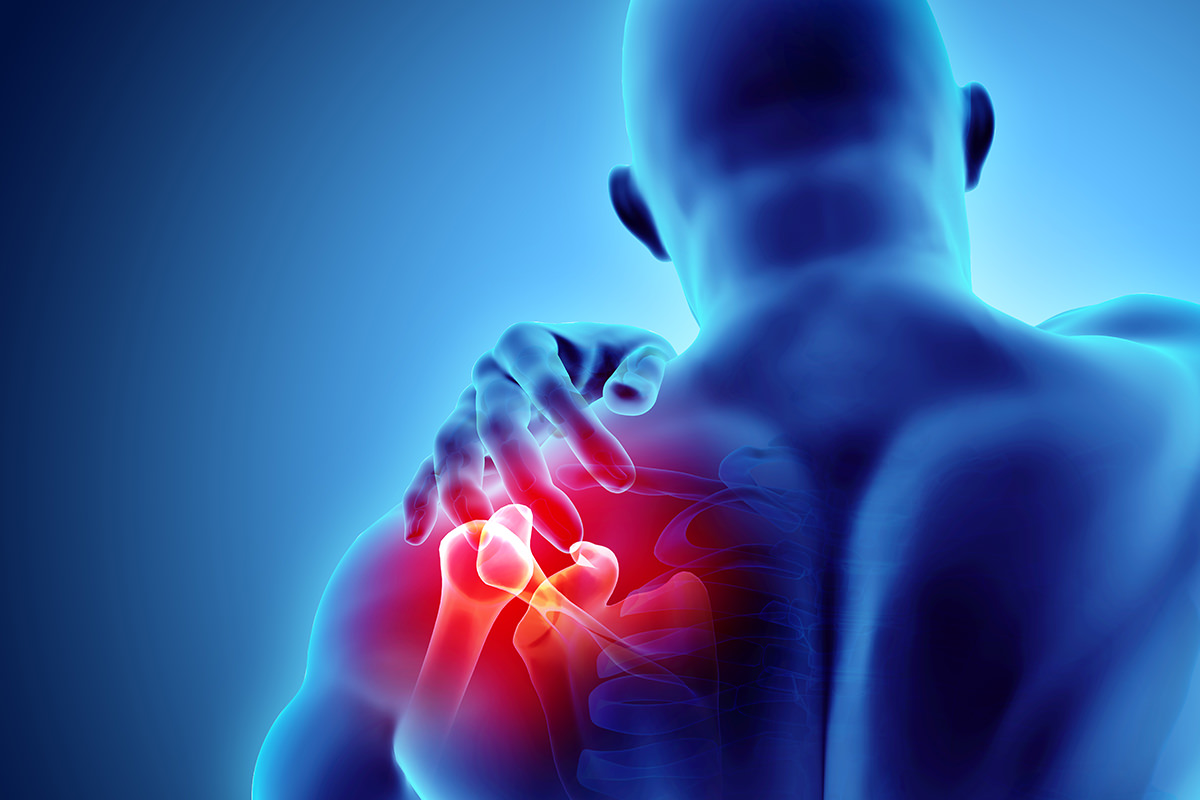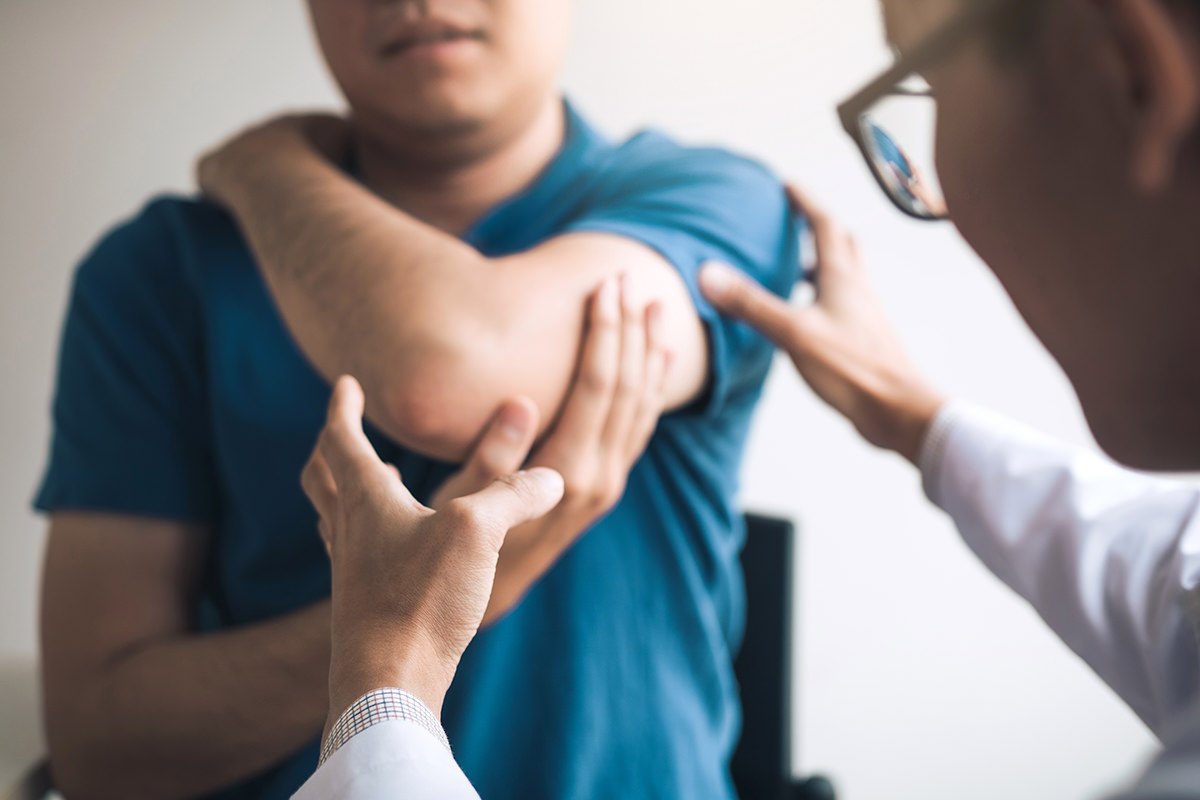Orthopedic Shoulder Injuries & Treatments
Shoulder Anatomy
The shoulder has a wide range of motion and is the most movable joint in your body. But, because the ball of the upper arm is larger than the socket, and is supported by soft tissue, it’s more prone to injury. Shoulder problems can happen to anyone, whether it’s athletes throwing or shooting a ball or repeated lifting in your job.
Common Shoulder Problems
Shoulder problems are often caused by injuries or degenerative diseases resulting in:
Bursitis
- Inflammation of the bursa sac (which protects your shoulder).
Dislocation
- Forced separation of your shoulder joint ball and socket.
Fracture
- Partial or total break in the bone because of injury.
Shoulder Impingement Syndrome
- Pinching of the rotator cuff tendons and subacromial bursa in the shoulder.
Rotator Cuff Tear
- Torn tendons in the muscles of the rotator cuff from aging, overuse, or injury.
Separation
- Tearing of ligaments in the AC joint connecting the collarbone and shoulder blade at the acromion.
Tendonitis
- Worn out or inflamed rotator cuff or biceps tendon.
Torn Shoulder Labrum
- Tear in the rubbery tissue (labrum) that helps keep the ball of your shoulder joint in place.
Symptoms of Common Shoulder Problems
Symptoms from shoulder problem may spread to different areas around your shoulder or arm, and include:
- Inability to move your shoulder or decreased range of motion.
- Numbness, tingling, or weakness.
- Pain from raising your arm or lifting an object over your head.
- Stiffness or achiness.
- Swelling, redness, or bruising.
- Visibly out-of-place shoulder.
- Weakness or soreness during movement.
Treatment Options and Procedures
Shoulder problems often get better with rest and non-surgical treatments, but arthroscopic and open surgery procedures are effective when needed.
As an orthopedic physician with fellowship training in the treatment of shoulder injuries, you can be confident Dr. Treat will diagnose your shoulder condition and recommend the surgical or non-surgical treatment that is best for you.
Non-Surgical Treatments for Shoulder Injuries
-
Changes to daily activities.
-
Rest your shoulder from activities causing symptoms.
-
Take anti-inflammatory medicines.
-
Participate in physical therapy.
-
Get an anti-inflammatory steroid injection.
Surgical Treatments for Shoulder Injuries
- Rotator cuff repair – the tendon gets reattached to the head of the humorous or trimmed and smoothed for partial tears.
- Arthroscopic capsular release – a probe cuts the tissue capsule around the shoulder to allow more freedom of movement.
- Labral repair – the labrum gets reattached using an arthroscopic device.
- Shoulder joint replacement – damaged areas of the shoulder get replaced with artificial or new materials.
Ready for Shoulder Relief?
Dr. Treat will Treat You Like Family
Schedule an Appointment
– Accepting New Patients –



